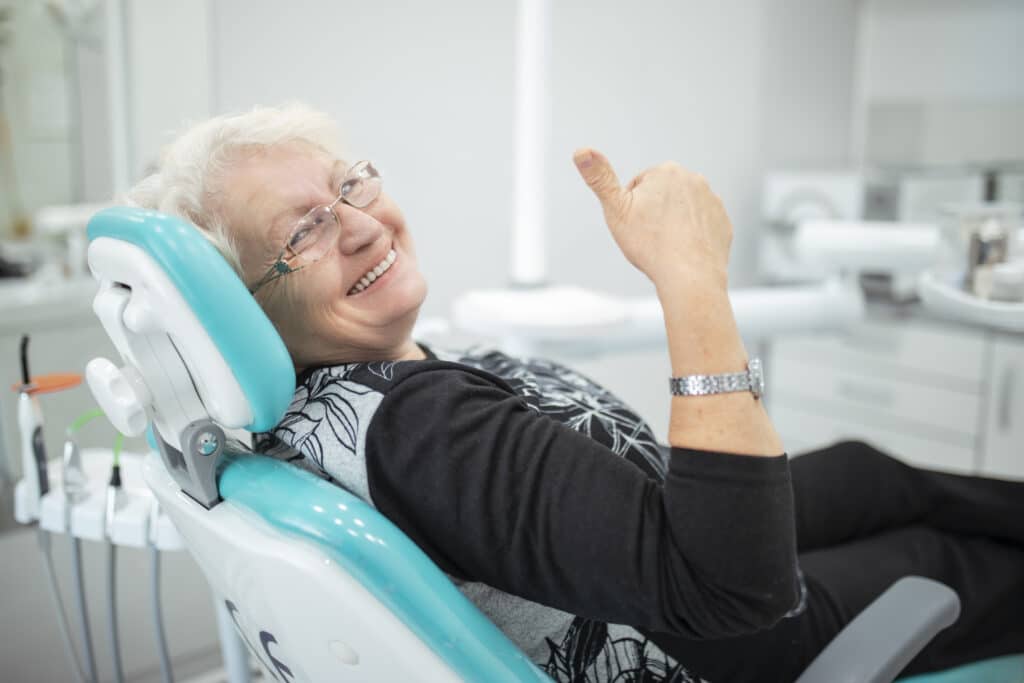
Oral surgery is often an important step in restoring your health and smile, but for many patients, it can also be a source of stress or anxiety. Fortunately, you don’t have to go through oral surgery without help. Many dentists, including Middle Tennessee Prosthodontics, offer sedation options that can help you relax or put you entirely to sleep.
Whether you’re having a tooth removed, preparing for an implant-supported restoration, or undergoing a full-mouth rehabilitation, sedation can help you feel at ease throughout the entire procedure.
Why Sedation Matters for Oral Surgery
Even when a procedure is routine, it’s normal to feel nervous about surgery. Some patients worry about discomfort or sitting still for long periods, while others experience more severe dental anxiety or have physical conditions that make dental treatment challenging. Dental sedation is particularly helpful if you have had past bad experiences with the dentist.
Sedation dentistry provides a safe and effective way to manage your concerns during an oral surgery. By calming the body and mind, sedation allows you to receive the care you need in a more relaxed state. There are different types of sedation dentistry, depending on what procedure you need and your level of anxiety.
Oral Surgeries That May Involve Sedation
Sedation may be recommended for a variety of oral surgeries, including:
- Tooth Extractions: Especially for wisdom teeth or severely damaged teeth that can’t be restored.
- Implant Placement or Restoration: When implants or abutments are placed or adjusted.
- Full-Mouth Rehabilitation: When combining several treatments in one visit, sedation keeps you comfortable throughout.
- Emergency Surgeries: Sedation can reduce pain and anxiety in urgent situations, helping you receive care quickly and safely.
Types of Dental Sedation Used
Each type of sedation dentistry serves a specific purpose depending on the level of relaxation needed and the complexity of your procedure. Our Brentwood office offers nitrous oxide and IV sedation, but other dentists may offer oral conscious sedation, too.
Nitrous Oxide (Laughing Gas)
Nitrous oxide is a mild sedative inhaled through a small mask placed over your nose. It takes effect quickly and helps reduce anxiety while keeping you fully conscious and responsive. This option is ideal for shorter, less invasive surgeries or for patients with mild dental anxiety. One of the main advantages is that the effects wear off quickly. Many patients can safely drive themselves home after using laughing gas.
Oral Conscious Sedation
With oral conscious sedation, you’ll take a prescribed pill before your procedure to help you feel calm and deeply relaxed. You’ll remain awake, but time may pass quickly, and you may remember very little of the experience. This type of sedation is often used for longer procedures or when patients have moderate anxiety.
IV Sedation
IV sedation delivers medication directly into your bloodstream for a deeper level of sedation. Patients often do not remember the procedure afterward and may even fall asleep during treatment. IV sedation is typically used for more complex surgeries or for patients with severe anxiety. We coordinate with trusted specialists to provide IV sedation when it’s appropriate for your care.
Is Sedation Right for You?
Sedation isn’t just for anxious patients. It’s a useful tool for anyone undergoing an oral surgery that may take time or cause discomfort. During your consultation, we’ll review your medical history, discuss any concerns, and help determine which type of sedation fits your needs.
If you’ve avoided treatment in the past due to fear, physical discomfort, or a sensitive gag reflex, sedation can make a big difference in your experience.
Complete Your Treatments Quickly and Calmly
At Middle Tennessee Prosthodontics, our mission is to simplify even the most complex dental experiences—and that includes helping you feel comfortable. Whether you’re preparing for surgery or simply looking for options that make a visit easier, we’re here to support you with compassionate, personalized care.
To learn more about how sedation can help during oral surgery, schedule a consultation with our team today. Together, we’ll find a solution that helps you move forward with confidence.